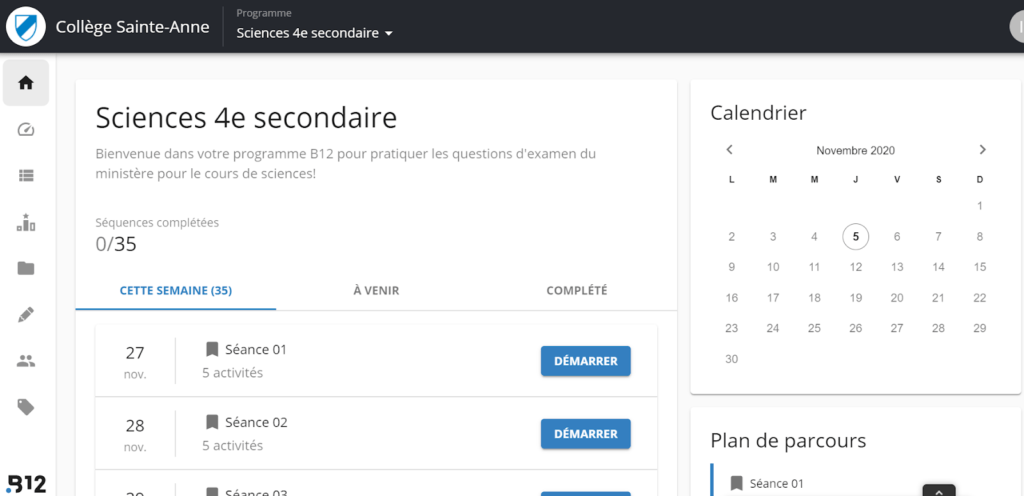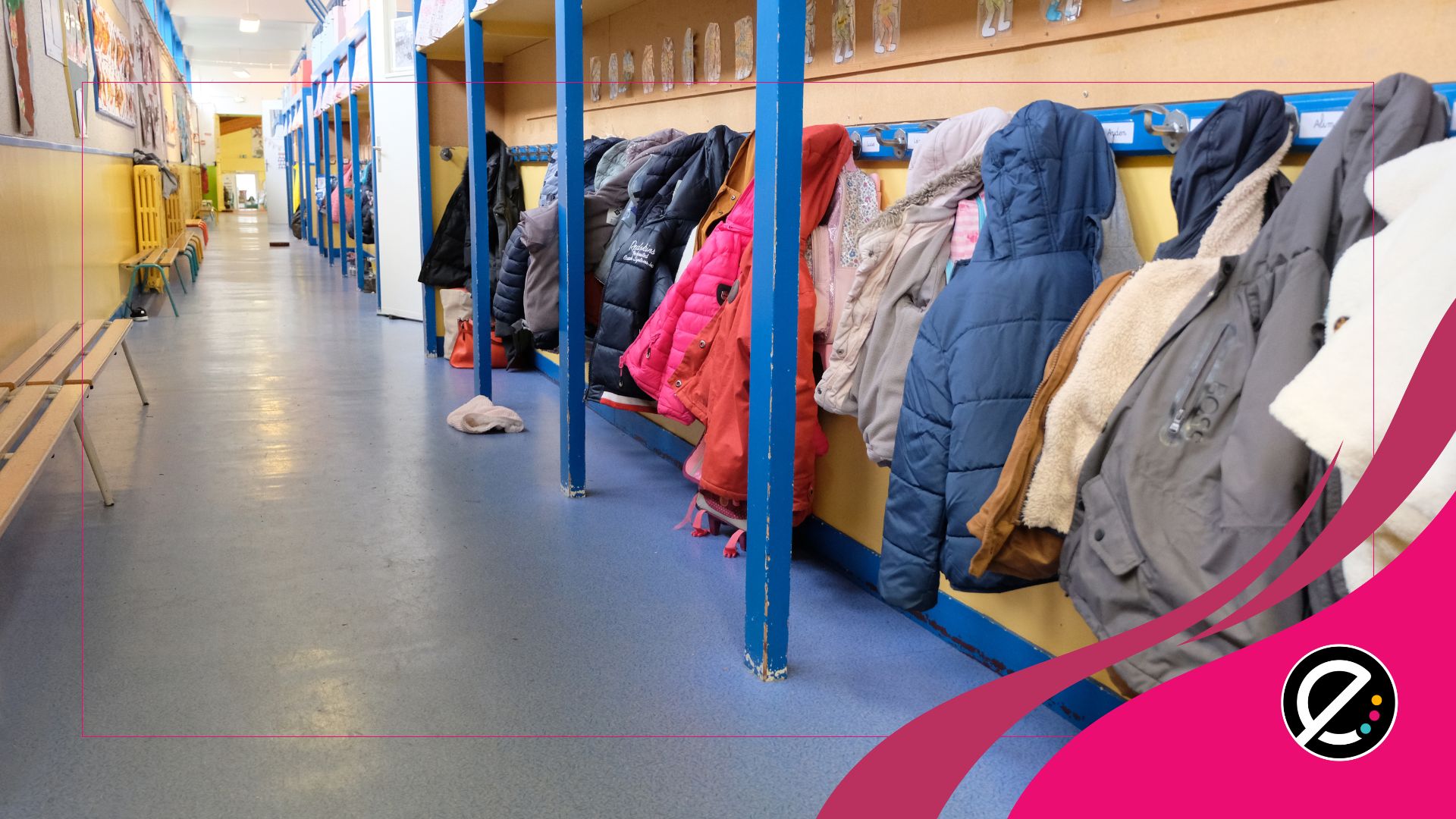De quelle façon est-il possible de favoriser le renforcement et la réactivation de certaines notions chez les élèves, sans que cela devienne épuisant, stressant et ennuyant pour eux? La technologie devient une solution pour les élèves du Collège Sainte-Anne.
« Des enseignants cherchaient une façon originale et plus ludique de faire réviser les notions de sciences de 4e secondaire par leurs élèves. Une enseignante a proposé la conception d’une application. Nous nous sommes rapidement rendus compte que nous pouvions trouver des partenaires qui avaient déjà développé un produit que nous pourrions réutiliser », explique Isabelle Senécal, directrice de l’innovation pédagogique au Collège.

Le projet B12 a démarré au cours de la dernière année, en collaboration avec Jean-Philippe Bradette, cofondateur et président d’ApprentX. En fait, l’application B12 existait déjà et était utilisée dans un contexte de formation en milieu professionnelle. Son usage a été quelque peu détourné pour permettre la révision de connaissances dans un contexte scolaire. Cette année, tous les élèves de 4e secondaire utilisent l’application en sciences.
Concrètement, il s’agit d’importer dans l’application une série de questions et réponses. Des séances de révision sont ensuite programmées, à fréquence déterminée. Chacune est prévue pour durer un maximum de 5 minutes. L’élève reçoit une notification et peut compléter sa séance sur ordinateur, tablette ou cellulaire, à sa guise, en dehors des heures de classe. « Nous misons sur la réactivation constante, avec des séances de courte durée, mais fréquentes », dit Mme Senécal.
Nous misons sur la réactivation constante, avec des séances de courte durée, mais fréquentes.
Isabelle Senécal
Des données utiles
L’application a non seulement l’avantage de rendre le renforcement plus ludique pour les élèves, elle libère les enseignants de certaines tâches de révision qu’ils n’ont plus à faire en classe. Elle fournit également des informations favorisant la différenciation et les interventions ciblées.
Les enseignants peuvent obtenir des statistiques par groupe, par élève, par thème, par question. En jetant un coup d’œil au tableau de bord, il est possible de repérer les notions qui sont moins bien maîtrisées par les élèves, de faire des révisions de groupe au besoin, et même intervenir au cas par cas. Par exemple, l’an dernier, ils ont vite remarqué que les élèves n’avaient pas bien assimilés le module sur l’électricité et ont organisé des séances de révision sur le sujet.

Par ailleurs, avant de répondre à chaque question, l’élève doit indiquer son niveau de confiance. Se croit-il en mesure de donner la bonne réponse? Cette information est précieuse et les enseignants sont invités à en tenir compte.
« L’application est encore en développement en vue d’y intégrer une véritable intelligence artificielle. Éventuellement, elle pourra analyser les résultats des élèves et leur envoyer des questions ciblées selon leurs réponses précédentes. Nous en sommes encore au tout début de l’exploitation du potentiel de cet outil », indique Mme Senécal.
Les enseignants se montrent déjà satisfaits des résultats obtenus et l’équipe-école a entrepris d’ajouter un volet questions/réponses en français. Cette fois, ce sont l’ensemble des niveaux qui seront concernés. La première mouture de ce nouveau module devrait être prête pour septembre 2021.
Le projet B12, rendu possible grâce à la Fondation du Collège Sainte-Anne, est aussi sous la loupe de Patrick Charland, co-titulaire de la Chaire UNESCO de développement curriculaire et professeur au département de didactique de l’UQAM, qui tentera de valider si l’utilisation de ce genre d’application peut favoriser la réussite des élèves.
Pour un aperçu de l’application, on vous invite à visionner la vidéo d’ApprentX.







